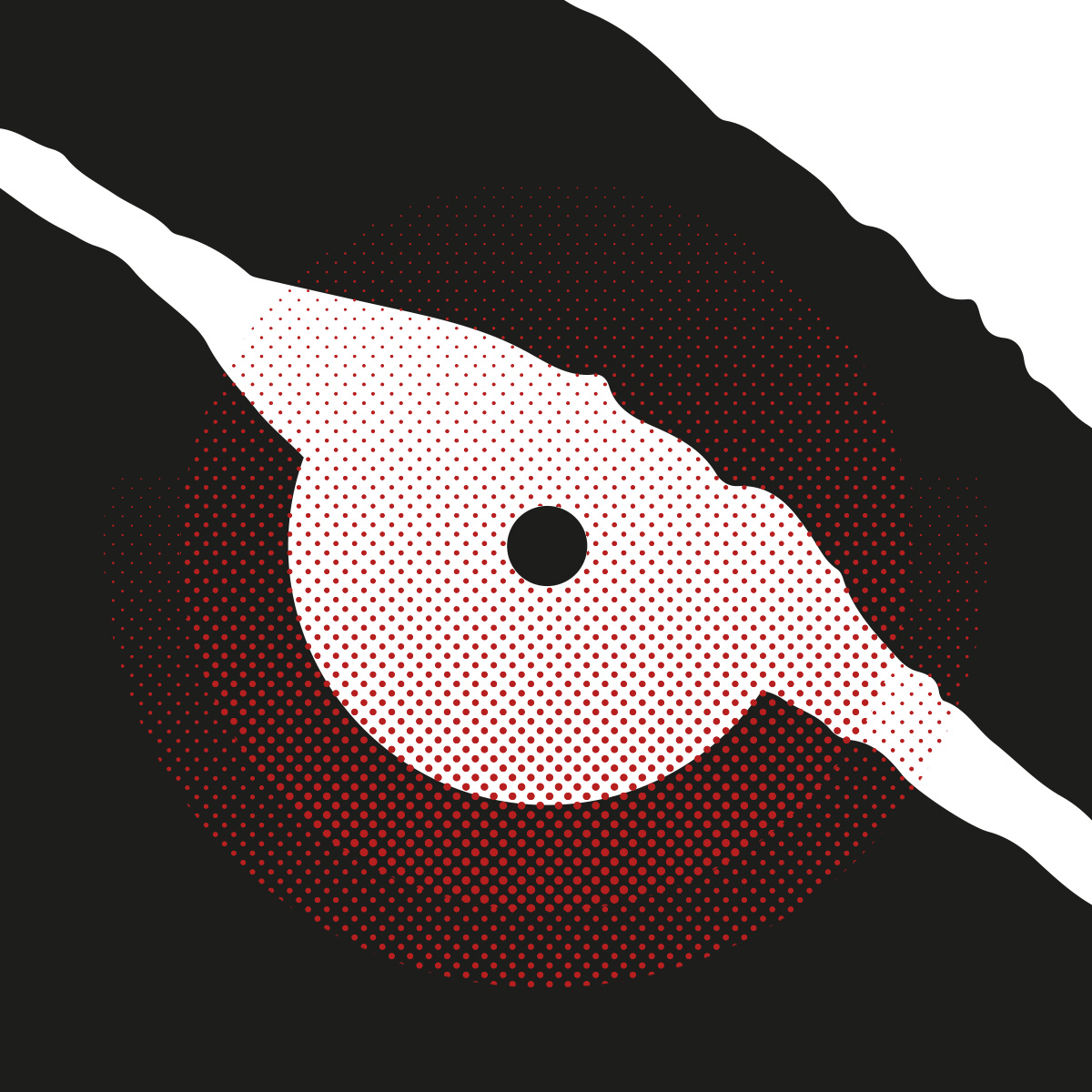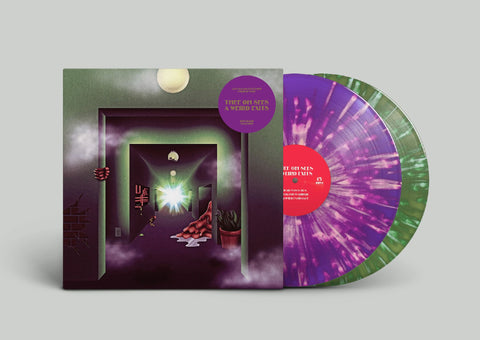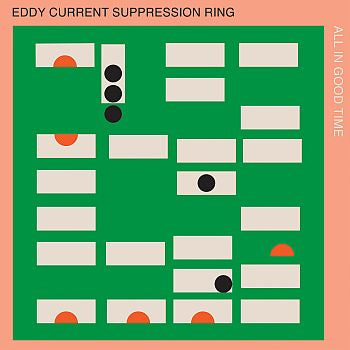
Slumberland
** FLASH SALE ** PROPER ORNAMENTS - Foxhole LP
$25.00
$32.95
Highly recommended.
The Proper Ornaments try to stylize their music to the psychedelic rock of the late sixties and they do it pretty successfully.
Many of the songs on this one were written on piano instead of guitar. Mostly Jangle Pop, it's still dreamy and slightly psychedelic, and it sounds perfectly like the late 60s.
Proper Ornaments is the project of James Hoare (Ultimate Painting, Veronica Falls) and Max Oscarnold (Toy, Pink Flames). The band germinated slowly from their friendship, which began when Max distracted James from shop-keeping, as his then girlfriend attempted to steal shoes. Max was freshly arrived in London from Buenos Aires; helped out by Andrew Loog Oldham as it happens, to escape a drug-lead implosion of a previous band and a family member's plan to have him sectioned.
The chance meeting blossomed into an epicurean riot of luminous highs and cold, dismal crashes that conversely produced music that was very well ordered and faintly angelic. It was so much deeper and more refined, serious, simple and affecting than anything suggested by the bare facts - a guitar band in East London, ten years into the infancy of a millennium that had so far freighted those five words with plenty of horrendous mental associations.
On "Foxhole" they've sliced away a whole stratum of their sound, removing some distortion and lowering the frequency of plectrum strokes to allow more nuanced, piano-led ideas to emerge. The title isn't a reference to Television's jaunty proto-punk record but seems to be more of a dark, protective interior, a head space sketched out on "Jeremy's Song." While their particularly recognisable production style (a bright, frozen counterpoint to the airless mixes one encounters more often) remains, three things stand out as likely reasons for the shift in mood. By the time they got around to recording again in James' bedroom in Finsbury Park that Summer, the instability around the recording of "Wooden Head" (and the five years before) had slid into a deep and seething acrimony. Second, they both bought pianos. Third, when the band, with Daniel Nellis and Bobby Syme joining on bass and drums went to record at Tin Room in Hackney, the pinch wheel on the 8 track machine was broken and somehow no one noticed. All but one recording, "Frozen Stare," was hopelessly warped, so they went and did it all again from scratch back at James'.
The mechanical blow out that had wasted weeks of their time and money coincided with a thaw in their friendship, and by the time they were re-recording they were both being treated conspicuously gentler by life.
"That's why the record has a laid back, conversational, not imposing or anxious feel in my opinion,” Max says about their rapprochement, “There's also the technical limitation of doing it on an 8 track which gives the songs a more sparse sound."
If "Always There" was the most melodically fluid but dimly lit point of the first record, there are another half album of songs here at least that are as strikingly gorgeous and unsettling. "Memories," "Just a Dream," "Frozen Stare" and "When We Were Young" are in this mould, as is the icy, slightly devastated goodbye that closes the record "The Devils," filled out with piano reminiscent of Big Star's "Third" or Lou Reed's "Berlin" and cracked double bass. What was in evidence in two of their earliest songs - "You Still" and "Are You Going Blind?" – an understated, poetic play of moral sensitivity against a callous distance, of warmth and hostility, has reached its most sustained expression yet and gives their pop moments of a haunted love song quality along the lines of Del Shannon, Lesley Gore or Roy Orbison.
"Bridge by a Tunnel" and "When You Wake," on the other hand, share in the breezily abstracted character of 2014 single "Magazine," the later laying a sardonic (non)apology - "I know you know, things could've been different/but they'e not" over careful daubs of slide guitar. "Cremated" is also guitar-lead, and reaches an early apogee of morbid oblivion baiting, while "1969" is a really perfectly recorded grand sweep of sound that recalls Serge Gainsbourg and "Harvest"-era Neil Young.
Proper Ornaments hold the attraction of seeming to not try very hard at all and achieve something outstanding nonetheless. Quite apart from our attachment to laziness and chance which make this seductive, textures of dappled drums, softened-out guitars and vocal harmonies that slide along as effortlessly as this, any evidence of conscious construction spirited away, are in themselves totally ecstatic to listen to. - Edgar Smith
The Proper Ornaments try to stylize their music to the psychedelic rock of the late sixties and they do it pretty successfully.
Many of the songs on this one were written on piano instead of guitar. Mostly Jangle Pop, it's still dreamy and slightly psychedelic, and it sounds perfectly like the late 60s.
Proper Ornaments is the project of James Hoare (Ultimate Painting, Veronica Falls) and Max Oscarnold (Toy, Pink Flames). The band germinated slowly from their friendship, which began when Max distracted James from shop-keeping, as his then girlfriend attempted to steal shoes. Max was freshly arrived in London from Buenos Aires; helped out by Andrew Loog Oldham as it happens, to escape a drug-lead implosion of a previous band and a family member's plan to have him sectioned.
The chance meeting blossomed into an epicurean riot of luminous highs and cold, dismal crashes that conversely produced music that was very well ordered and faintly angelic. It was so much deeper and more refined, serious, simple and affecting than anything suggested by the bare facts - a guitar band in East London, ten years into the infancy of a millennium that had so far freighted those five words with plenty of horrendous mental associations.
On "Foxhole" they've sliced away a whole stratum of their sound, removing some distortion and lowering the frequency of plectrum strokes to allow more nuanced, piano-led ideas to emerge. The title isn't a reference to Television's jaunty proto-punk record but seems to be more of a dark, protective interior, a head space sketched out on "Jeremy's Song." While their particularly recognisable production style (a bright, frozen counterpoint to the airless mixes one encounters more often) remains, three things stand out as likely reasons for the shift in mood. By the time they got around to recording again in James' bedroom in Finsbury Park that Summer, the instability around the recording of "Wooden Head" (and the five years before) had slid into a deep and seething acrimony. Second, they both bought pianos. Third, when the band, with Daniel Nellis and Bobby Syme joining on bass and drums went to record at Tin Room in Hackney, the pinch wheel on the 8 track machine was broken and somehow no one noticed. All but one recording, "Frozen Stare," was hopelessly warped, so they went and did it all again from scratch back at James'.
The mechanical blow out that had wasted weeks of their time and money coincided with a thaw in their friendship, and by the time they were re-recording they were both being treated conspicuously gentler by life.
"That's why the record has a laid back, conversational, not imposing or anxious feel in my opinion,” Max says about their rapprochement, “There's also the technical limitation of doing it on an 8 track which gives the songs a more sparse sound."
If "Always There" was the most melodically fluid but dimly lit point of the first record, there are another half album of songs here at least that are as strikingly gorgeous and unsettling. "Memories," "Just a Dream," "Frozen Stare" and "When We Were Young" are in this mould, as is the icy, slightly devastated goodbye that closes the record "The Devils," filled out with piano reminiscent of Big Star's "Third" or Lou Reed's "Berlin" and cracked double bass. What was in evidence in two of their earliest songs - "You Still" and "Are You Going Blind?" – an understated, poetic play of moral sensitivity against a callous distance, of warmth and hostility, has reached its most sustained expression yet and gives their pop moments of a haunted love song quality along the lines of Del Shannon, Lesley Gore or Roy Orbison.
"Bridge by a Tunnel" and "When You Wake," on the other hand, share in the breezily abstracted character of 2014 single "Magazine," the later laying a sardonic (non)apology - "I know you know, things could've been different/but they'e not" over careful daubs of slide guitar. "Cremated" is also guitar-lead, and reaches an early apogee of morbid oblivion baiting, while "1969" is a really perfectly recorded grand sweep of sound that recalls Serge Gainsbourg and "Harvest"-era Neil Young.
Proper Ornaments hold the attraction of seeming to not try very hard at all and achieve something outstanding nonetheless. Quite apart from our attachment to laziness and chance which make this seductive, textures of dappled drums, softened-out guitars and vocal harmonies that slide along as effortlessly as this, any evidence of conscious construction spirited away, are in themselves totally ecstatic to listen to. - Edgar Smith




